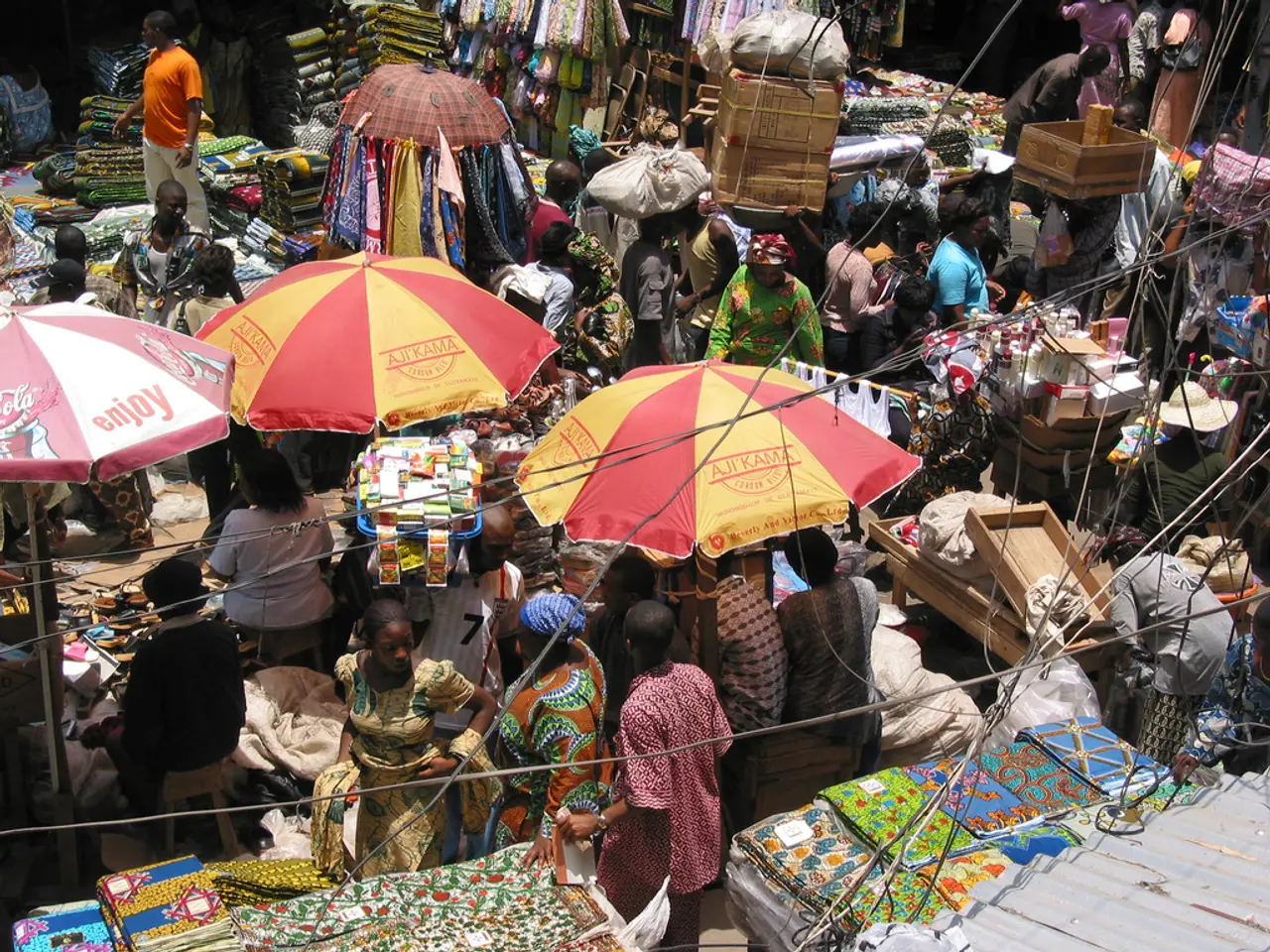Investment Strategy for Dubai Property Market 2025: Navigating Profitable Paths
Dubai's real estate sector continues to thrive, offering a diverse range of investment opportunities in residential, commercial, and off-plan properties. Foreigners can own property in designated freehold areas of Dubai with full ownership rights, making it an attractive destination for international investors.
The growth in the off-plan sales sector was particularly notable in 2024, with a nearly 60% increase, and this trend is expected to continue in 2025. Over 180,000 real estate transactions were recorded in 2024, and this momentum has carried over into 2025, with transactions reaching AED 431 billion in H1 2025—up 25% from the previous year.
One of the key factors driving this growth is the ongoing population expansion and a projected GDP growth of 4-5% yearly, fueling demand for housing and commercial space. This demand is being met with a balanced supply growth, with about 9,300 residential units completed in Q1 2025 and an expected 73,000 units by year-end, totaling 300,000 new units by 2028.
Residential properties, including apartments, villas, and townhouses, dominate transaction volumes, with strong rental demand driven by Dubai’s expatriate influx. Rents have risen by an average of 17% across the board, and gross rental yields remain attractive, averaging between 6-9%. Apartments typically yield between 6.5% to 7.5%, while villas average around 5%.
Premium office and retail spaces in hubs such as Downtown Dubai and Business Bay attract investors. The process of buying property in Dubai is supported by clear legal processes and digital platforms like the DLD's Dubai REST app.
The commercial real estate sector is also seeing growth, with blockchain-verified ownership raising transparency and lowering entry barriers, especially for commercial property investors.
Off-plan villa sales and demand for upgraded legacy-community homes have driven a 240% surge in Dubai’s prime real estate market since 2022, presenting notable opportunities in this segment.
Government policies and foreign investment continue to play a significant role in the Dubai real estate market. Programs like the UAE Golden Visa and relaxed foreign ownership regulations continue to attract significant foreign direct investment from Europe, Asia, and Russia, enhancing market liquidity.
Emerging fintech platforms offering digital real estate investment tools improve transparency and efficiency for investors, an innovative trend gaining traction in 2025.
Investors should be mindful of market fluctuations, oversupply, off-plan project delays, legal and regulatory changes, currency exchange risks, and hidden costs when investing in Dubai real estate. However, the long-term outlook remains bright due to government initiatives like the Dubai 2040 Urban Master Plan, the continued expansion of visa programs, and the development of new economic sectors (tech, AI, healthcare).
For those seeking residency in Dubai, a 2-year residency visa is available for properties worth AED 750,000 or more, and a 10-year Golden Visa can be secured by investing AED 2 million or more in Dubai real estate.
Dubai Creek Harbour, a waterfront destination under development by Emaar, and Dubai Hills Estate, a family-friendly master development with schools, malls, and parks, are just a few examples of the exciting projects on the horizon. Meydan offers luxury villas and high-end townhouses with racecourse and golf views.
Jumeirah Village Circle (JVC) offers affordable, high-yield apartments ideal for short-term rentals. Business Bay, located close to Downtown, offers a mix of residential and commercial spaces.
In conclusion, Dubai’s 2025 real estate market is characterized by balanced supply growth, strong investor confidence due to favorable regulation, diverse segment expansion, and technological innovation, making it a compelling investment landscape for both long-term and short-term investors.
- The growth in Dubai's real estate sector, particularly in the off-plan sales sector, is expected to continue in 2025, attracted by a projected GDP growth of 4-5% yearly and a balanced supply growth of residential units.
- Residential properties, such as apartments, villas, and townhouses, dominate transaction volumes in Dubai, with strong rental demand driven by the city's expatriate influx.
- Premium office and retail spaces in areas like Downtown Dubai and Business Bay, supported by clear legal processes and digital platforms, attract investors in the commercial real estate sector.
- Emerging fintech platforms are improving transparency and efficiency for investors by offering digital real estate investment tools, an innovative trend that is gaining traction in 2025.
- Government policies and foreign investment continue to play a significant role in the Dubai real estate market, with programs like the UAE Golden Visa and relaxed foreign ownership regulations attracting investors from Europe, Asia, and Russia.
- Dubai Creek Harbour, Dubai Hills Estate, Meydan, Jumeirah Village Circle (JVC), and Business Bay are just a few examples of the exciting real estate projects on the horizon, contributing to Dubai’s compelling investment landscape for both long-term and short-term investors.




